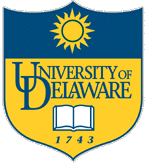
INTRODUCTION TO LABORATORY INSTRUCTION
Assignment 2


|
INTRODUCTION TO LABORATORY INSTRUCTION Assignment 2 |
 |
Scholarly Preparation for
a Future Laboratory Exercise
Due Tuesday, 21
September 2010
Click here
for a pdf file of this assignment.
In preparing for teaching a laboratory, there is a tendency to rely heavily on what you already know and the lab manual. Often emphasis is on procedures, rather than on concepts and understanding. While subject knowledge is essential and methodology is important, being a good TA also involves an appreciation of the behavior of students, their level of understanding, the concepts they will need to learn, and ways to communicate difficult topics. How will you conduct a laboratory exercise in a way that maximizes student learning efficiently?
Particular laboratory exercises are included in a teaching laboratory course for reasons. It is important that you understand those reasons and are prepared to address them before each laboratory. Just as there is a scientific literature dealing with research, there is an educational literature dealing with laboratory instruction. This assignment is intended to help you and your fellow TAs get ready for upcoming laboratories.
1. Consult with the other teaching assistants for the laboratory course you teach so that you do not duplicate each other's efforts. Select a future laboratory exercise that you will prepare for in a scholarly way.
2. Examine the exercise and decide what concepts, skills, knowledge, objectives are most important for the laboratory. You may consult with your laboratory supervisor or other TAs at this and other stages of this assignment. Feedback of this sort will improve your understanding and make the assignment more interesting.
3. Search the educational literature to find articles that deal with your particular exercise and/or more generally with the concepts and skills involved. (Don't give up right away, if you do not get immediate results. Searching the literature is an important skill that must be cultivated.) The course web-site includes links to a number of chemistry and biology journals. However, other journals and Internet sites certainly have useful information.
4.
Prepare
a two or three-page synopsis to turn in, to share with your course
instructor, and to share with other TAs who will be supervising that
laboratory. The
synopsis should include:
a. Your name, the date, the course, and the experiment being investigated.b. A short list of the main purpose(s) of the laboratory exercise. Be explicit.
c. A short list of valuable resources for TAs and instructors to access now or in the future, if they want more information. You probably want to include annotations to highlight what about the references makes them useful.
d. A list of ideas for TAs to use to enhance the quality of their instruction. These might include interesting material that makes the lab relevant to the lives and experience of students (e.g. biology-chemistry connections), concept questions that will show whether or not students understand, puzzles and problems to provoke curiosity about the subject of the laboratory, prelab activities including games to engage students, tips on explaining difficult topics, questions to ask students individually to stimulate thinking or relate to earlier course topics, diagrams that help visualize, etc.
e. And, as appropriate, suggestions for modifying/improving the current laboratory to make students think, interact, and understand better.